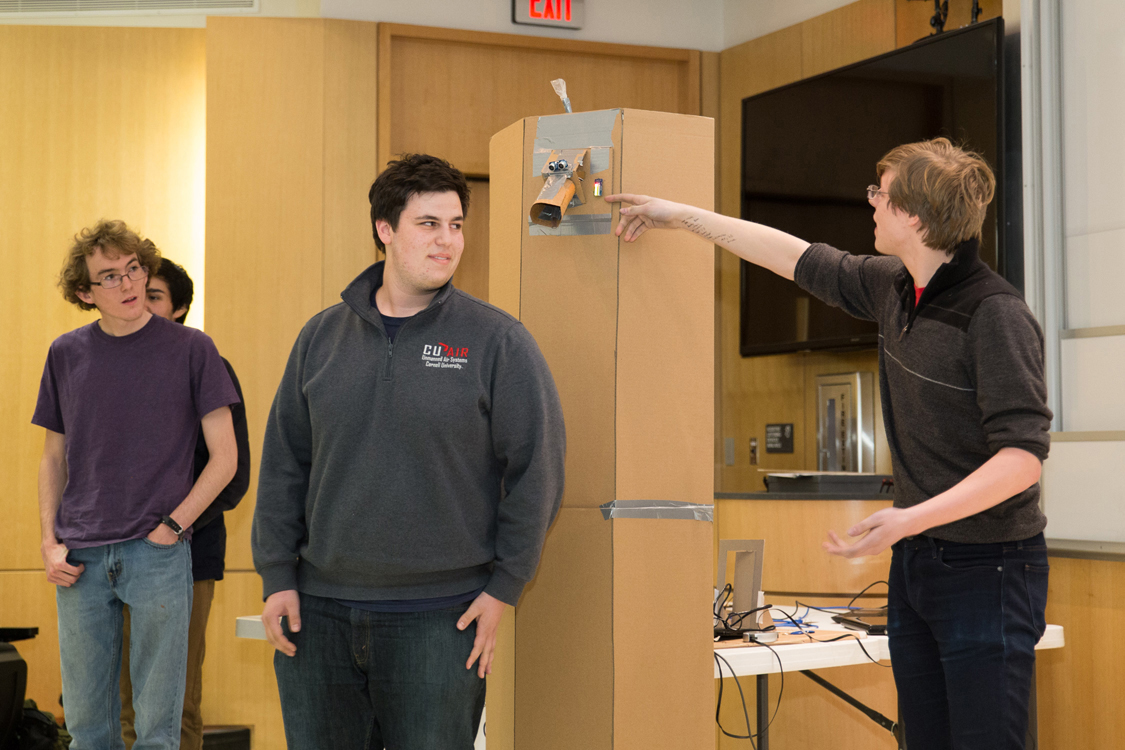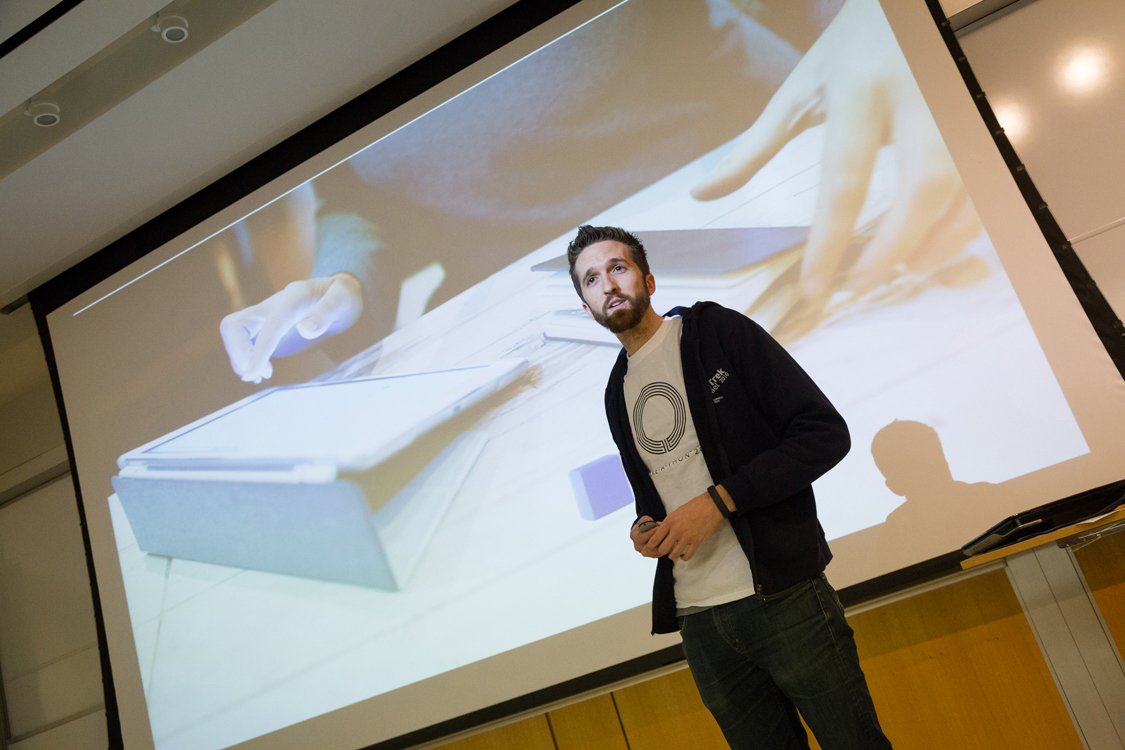High schoolers beat undergrads, grads at Make-a-thon
By Breonna Freeman


Students from majors such as computer science, biology, business, policy analysis and engineering and high school students came together Feb. 20-21 to participate in Cornell’s first “Make-a-thon” in the Physical Sciences Building atrium.
Their task: “to propose life-changing solutions using rapid prototyping techniques around the topic of smartliving.”
Life Changing Labs (LCL), a student-run, nonprofit organization, supported the event. Unlike a hack-a-thon, all of the designing, building and presenting was done in an open and collaborative environment to incubate innovative ideas.
The event began with 16 teams of high school and university student “makers” who were given, according to the event website, “a bunch of prototyping resources,” including pre-configured base arduino boards to help with accelerated development, sensors and rapid prototyping materials such as foam and chipboard.
After the hack and build period, teams named for their projects – Homebase, FindMe, Footprint, HydroHome, Instalert, Cook Guardian Lunar Walk and P!LLPAL – took part in the final pitch competition. Each finalist team was given six minutes to pitch its idea, present a live demonstration of the product and answer judges’ questions.
To add interest to the competition, the judges were not informed which teams were from high schools. Judge Pam Silverstein, an entrepreneur for more than 50 years, described the make-a-thon as more than just a friendly competition. She said it was “an opportunity for students to learn how to pitch about your life as well as yourself.”
Taking top honors was the high school team that developed P!LLPAL. Freya Ryd, a junior at Ithaca High School, said her team designed a bracelet that stores medication and notifies the wearer when it’s time to take his or her medication by vibrating and dispensing pills.
Second place went to another high school team for Instalert, which allows users to be notified via alarms and text messages when cabinets containing dangerous material are opened by small children. University students won third place for FindMe, which identifies misplaced objects with a tracking and scanning system.
Michael Raspuzzi, B.Arch. ’16, managing director of LCL and lead coordinator of the event, presented each student on the winning high school teams with a $500 scholarship to LCL’s high school summer program.
Sponsors included Blackstone LaunchPad, Entrepreneurship at Cornell, Community Partnership Funding Board, Robotmesh and Cornell Engineering.
Breonna Freeman ’19 is a writer intern for the Cornell Chronicle.
Media Contact
Get Cornell news delivered right to your inbox.
Subscribe